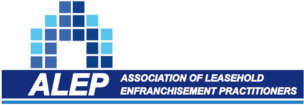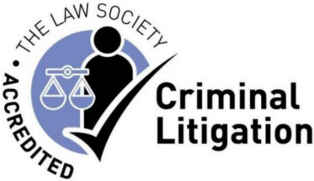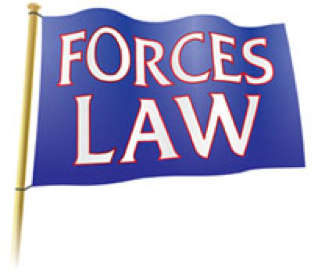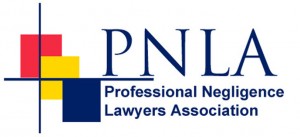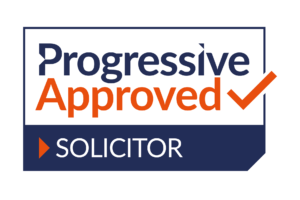Lawyers Who Specialise in Defending & Enforcing Restrictive Covenants on Property & Land 
When it comes to property, a restrictive covenant is a legally binding condition restricting what homeowners can do with their property. They are usually intended to help maintain standards within a neighbourhood by, for example, disallowing occupiers from installing satellite dishes on the front of their houses or keeping livestock. Our Solicitors specialise in restrictive covenant work.
If you benefit from a restrictive covenant and someone breaches it, you may be able to take legal action, forcing them to comply with the covenant and seeking damages for any financial losses. In contrast, if you breach a restrictive covenant, your neighbours might be able to take legal action against you.
Looking for expert legal advice? Call our Restrictive Covenant Solicitors on FREEPHONE 0800 1404544 for FREE initial phone advice – with no strings attached.
NB This page is entirely about restrictive covenants on land as distinct from contracts of employment. Click here to find out How restrictive covenants in employment contracts work?
What are the main types of restrictive covenants?
Despite what many people believe, restrictive covenants do not only impact new-build homes. Any property can be subject to restrictive covenants, whether leasehold or freehold, and whatever its age.
Being aware of any restrictive covenants that effect your property is crucial in understanding what you can and can’t do in connection with it. Examples of some of the most common restrictive covenants homeowners might come across include the following:
· Restrictions on altering or extending their property.
· Limitations on using their property for business purposes.
· Parking restrictions.
· Restrictions on building other structures on their land.
· Limits on the height of buildings on their land.
What is the difference between positive and restrictive covenants?
Two types of covenants can affect land: positive and restrictive.
The key difference between positive and restrictive covenants is that a positive covenant requires the landowner to take action or spend money, while a restrictive covenant prohibits the landowner from doing something in connection with their land.
A covenant can be worded in negative terms when it is, in fact, positive, and vice versa. That’s why it’s essential to consider its effects rather than its wording.
For example, a covenant requiring that the homeowner does not allow the property to fall into disrepair might appear restrictive but is, in reality, positive since the homeowner must take proactive steps to comply with it. On the other hand, a covenant requiring the homeowner to refrain from building an additional structure on their land would be genuinely restrictive.
Another crucial difference between positive and restrictive covenants is that restrictive covenants tend to run with the land, meaning they bind anyone who takes ownership of it. In contrast, positive covenants often don’t, so they won’t bind any new owner unless additional steps are taken.
What is a ‘compulsorily renewed covenant’?
The most common method used to subject a new owner to a positive covenant is by way of what is known as a ‘compulsorily renewed covenant’. These kind of conditions oblige the original maker to obtain a new covenant on the same terms from any subsequent buyer. In other words, when the property is sold, the new owner must agree to the same positive covenant as the previous owner, so the positive covenant binds them in the same way.
This type of covenant is usually accompanied by a restriction on the property’s title that will prevent it from being sold without proof that the seller has complied with it.
Common examples of positive covenants on land and property
Examples of some common positive covenants include those that require the following:
· Repair and maintenance.
· Contributions to the upkeep of an access road or shared driveway.
· Contributions to the upkeep of a shared roof.
· Erecting and repairing boundary fences or walls.
How enforceable are restrictive covenants?
Restrictive covenants are only enforceable if they fulfil the relevant legal criteria. Establishing that any given restrictive covenant is enforceable can be tricky. That’s why it’s it’s best to take specialist legal advice on where you stand from solicitors who really understand this area of law.
To be enforceable, these kind of conditions must satisfy the following requirements:
· It is genuinely restrictive.
The substance of the covenant must be genuinely restrictive in nature. As we have explained, this requires looking closely at the effects of the covenant, not just its wording.
· It has been registered at the Land Registry.
Restrictive covenants created since 1926 must be registered to be enforceable. Where the land is registered, it should be registered on the Charges Register of the registered title. Where the land is unregistered, it should be registered at the Land Charges Department.
· It truly benefits the land belonging to the person seeking to enforce it.
The restrictive covenant must benefit the land owned by the person looking to enforce it. It cannot merely benefit the landowner personally.
· The benefitted land must be clearly identifiable.
For a covenant to be enforceable, anyone reading it must be able to clearly identify the land that benefits from it. If the land has been broken up and sold off since the covenant was made, fulfilling this requirement can be difficult.
· The restrictive covenant must be clear.
Any ambiguity in the meaning of the restrictive covenant may render it unenforceable.
Who can enforce a covenant?
That’s straightforward – only those with the benefit of the covenant can enforce it. In the case of a positive covenant, that is usually the person who originally entered into it unless steps have been taken to make it binding on a new owner.
Restrictive covenants, on the other hand, usually ‘run with the land’. This phrase means that the covenant does not only impact the original parties but also all future landowners. Essentially, a covenant that runs with the land is attached to the land itself, regardless of who owns it.
For a covenant to run with the land and so be enforceable by future owners, it must satisfy the following requirements:
· The parties who originally formed the covenant must have intended it to run with the land.
· The new landowner must have been aware of the covenant when they bought the land.
· The covenant must ‘touch and concern the land’, meaning any breach would negatively impact the value or use of the land that benefits from it.
· There must be privity. ‘Privity’ is a complicated legal principle. It essentially states that the benefit and burden of a covenant will only pass to future owners if certain relationships exist between the previous, present, and future property owners. Generally speaking, normal house sales satisfy the privity requirement.
Establishing whether any given person or company can enforce a restrictive covenant is a complicated exercise, necessitating a detailed review of the relevant documentation, such as the conveyance or transfer imposing the covenant, historical conveyances, and any associated plans.
Therefore, it’s advisable to seek expert legal advice from solicitors specialising in restrictive covenant work to confirm you are eligible to enforce a restrictive covenant, since ill-thought-out legal action can be very costly.
Conversely, any threats to bring legal proceedings against you for breaching a restrictive covenant can be effectively and quickly dealt with if you can establish that the person threatening the action has no right to do so.
My neighbour is breaching a restrictive covenant – what can I do?
The first step in enforcing a restrictive covenant is checking that you have the right to do so. Once you’ve established that, with the right specialist legal advice, if necessary, you should approach the person breaching or threatening to breach the covenant to remind them of their obligations and your rights. Sometimes, this type of direct, amicable approach can resolve the issue without the need for legal action.
If the other party ignores your approach, you should instruct a solicitor to send a formal letter to the other party. The letter will detail the scope of the restrictive covenant, explain how their actions are breaching it, and inform the recipient that you will take further legal action if they don’t remedy the issue at this stage. Often, when people realise that solicitors are involved and that they face the threat of legal proceedings, they change their position fairly quickly. Our team can help you with that.
If both negotiation and if necessary mediation doesn’t help to find a solution, in some cases, it might be necessary to take formal legal action to enforce the covenant. But litigation should always be a last resort, although it is sometimes unavoidable, particularly if the breach is causing you considerable losses. But going to court can prove very expensive with no guarantee that you will win and can be very slow and stressful. It’s definitely a last resort
Our expert restrictive covenant solicitors will review the circumstances of your case and advise on the merits of your position and the likelihood of your claim succeeding.
How do I enforce a restrictive covenant?
As explained above, if the party in breach of the restrictive covenant won’t agree to put things right, you are entitled to bring enforcement proceedings against them.
If your claim succeeds, the court can grant an injunction preventing the other party from doing anything that breaches the restrictive covenant. If the other party has already done the act that breaches it, the court may order them to undo it. For example, if they’ve built another structure on their land, they may have to demolish it.
The court can also award you damages to compensate you for any losses the breach has caused, such as a drop in your property’s value. Sometimes, the court will award damages instead of an injunction. Sometimes, it will award both.
Can a neighbour enforce a restrictive covenant?
Your neighbours can only enforce a restrictive covenant if the land they own benefits from it. Neighbours who don’t have any connection with the covenant can’t enforce it, no matter how aggrieved they feel by your actions.
Your neighbour need not be the original owner of the benefited land to enforce the covenant against provided its benefit ‘runs with the land’.
Common examples of restrictive covenants running with the land
We explained above that most restrictive covenants ‘run with the land’, meaning they bind anyone who becomes the legal owner of the affected property. For a covenant to run with the land, it must benefit the land itself rather than a person.
Some common examples of restrictive covenants that tend to run with the land include the following:
· Not to build additional structures on the land.
· Not to build structures over a certain height on the land.
· Not to access certain land.
Do restrictive covenants expire?
No, they don’t automatically expire. As we explained above, most ‘run with the land’ meaning they bind all future owners. As a result, a restrictive covenant that is hundreds of years old might still be enforceable.
However, this does not mean that there is nothing you can do about a restrictive covenant that is causing real problems by impacting your use of your land.
Sometimes, restrictive covenants can be removed, as explained below. Furthermore, a covenant can cease to bind future owners in some situations, such as when it had not been registered when the land was sold, so the new owner was unaware of it.
Can you remove a restrictive covenant?
Yes, although restrictive covenants do not automatically expire, they can be removed in certain circumstances by applying to the Lands Chamber of the Upper Tribunal.
Your application must be based on one of the conditions for removal specified by law. The grounds most applicants rely on are that the covenant impedes the reasonable use or development of the land or has become obsolete.
People with the benefit of the covenant can raise objections to an application to remove it. If any do, the process can be lengthy. Accordingly, it might be more sensible to seek to negotiate the removal with those people directly. They will likely require some sort of financial incentive to agree, but you’ll probably get a much quicker result.
Removing a restrictive covenant is complicated. You are going to need specialist legal advice and support to give yourself the best chance of securing the removal, whether by negotiation or application to the tribunal.
Can I ignore a restrictive covenant?
No- you must not simply ignore a restrictive covenant. Doing so can lead to legal action from those with the benefit of it. Any legal proceedings might result in an injunction prohibiting you from doing what you planned to or forcing you to undo what you have already done and an order requiring you to pay damages.
If you don’t think the covenant is enforceable, you should take legal action from specialist property dispute solicitors like ours. We will review the terms of the covenant and advise on its enforceability. Then, if the covenant is unenforceable, you can proceed with your proposed plan of action without the threat of legal proceedings hanging over you.
What is an overage covenant?
In short an overage condition requires the purchaser of land or property to potentially make additional future payments to do the vendor after completion of the transaction in the event that certain “trigger events” take place. These are most commonly used when land has possible future development opportunities.
Click here to read more about Property Overage
Are restrictive covenants the same as easements or rights of way?
No – they’re different, although they are both legal terms related to land ownership.
As explained on this page, restrictive covenants limit what the owner can do with their property or land, or provide a positive obligation to do something. In contrast, an easement or right of way grant rights to use someone else’s property for a particular purpose, such as access.
Restrictive covenants and the Land Registry
All restrictive covenants made since 1926 must be registered. If they aren’t, they are unenforceable.
The vast majority of property is now registered. That means that crucial information relating to it is held at the Land Registry. You can find out whether a particular registered property is subject to any restrictive covenants by obtaining the title register from the Land Registry and looking in the Charges Register.
The law governing restrictive covenants is incredibly complex, so specialist legal advice is essential when dealing with one. At Bonallack & Bishop, our team of highly experienced specialist property dispute solicitors has many years of experience in advising clients of the effects of any restrictive covenant they are subject to or benefit from.
We can provide all the advice you need on any issue relating to these kind of restrictions on property or land, including the enforceability of any given covenant and whether any proposed course of action would breach it. We can assist you in enforcing a restrictive covenant against someone who has breached or is threatening to breach it and claiming the damages you are entitled to. We can also defend any claim made against you.

